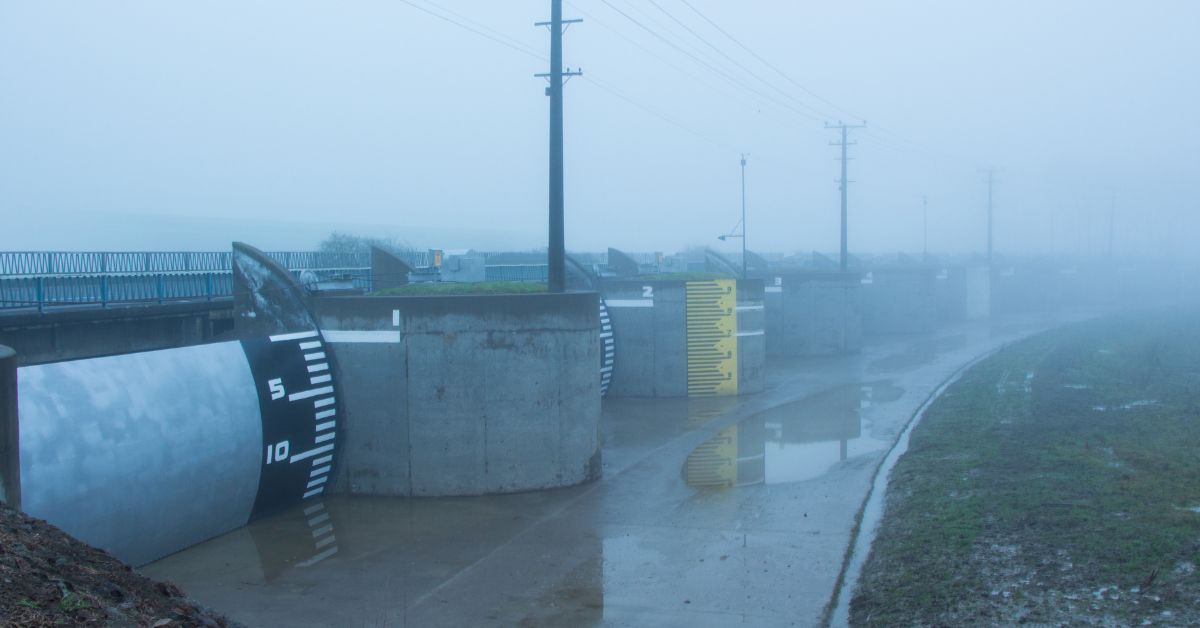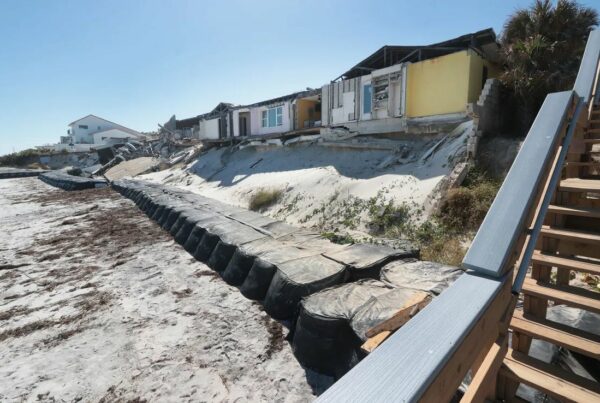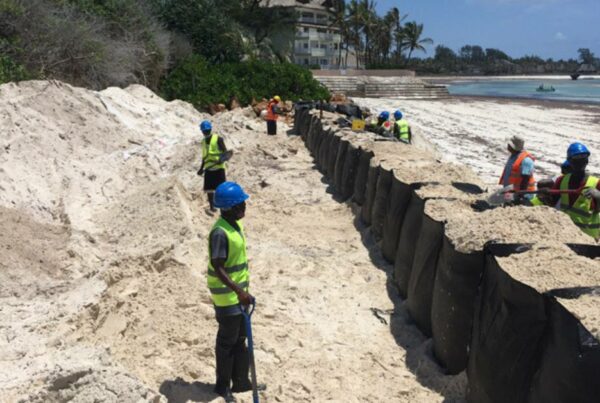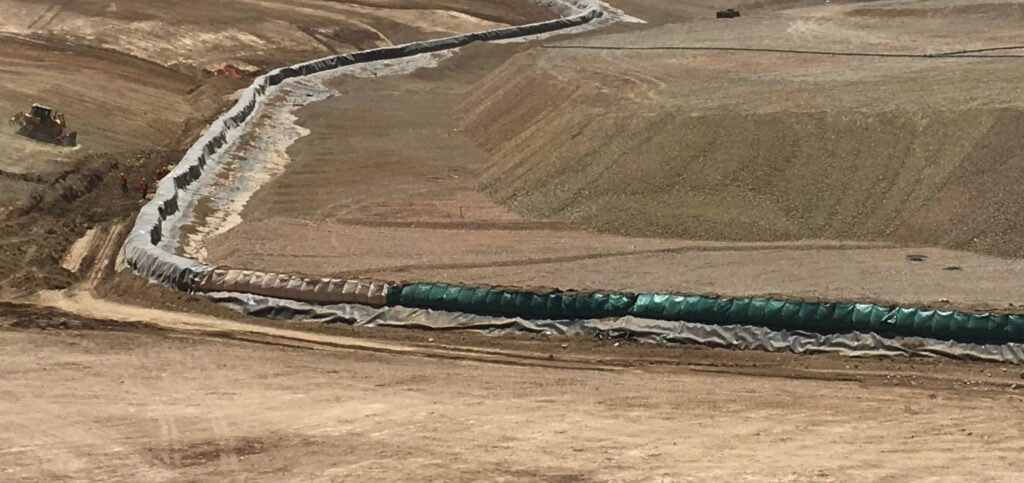TrapBag Solutions in Indonesia
Rapid-Deployment Flood Barriers
TrapBag® is designed to deploy faster and more effectively than traditional barriers like sandbags. Using these innovative barriers that deploy in a fraction of the time required for other barriers, emergency responders can protect at-risk homes, businesses, and entire neighborhoods.
Learn More »Erosion Barriers
Erosion barriers from TrapBag® are designed to preserve coastal areas and vulnerable riverbanks with ease. They protect coastal homes and buildings from erosion and prevent soil or beach loss that puts livelihoods at risk.
Learn More »Mudslide & Landslide Diversion
When filled with concrete or other heavy materials, TrapBag® barriers can even divert devastating mudflows away from vulnerable communities and buildings. As a temporary landslide protection wall, these barriers can save property from severe damage and prevent loss of life.
Learn More »Projects
Who We Serve In Indonesia
TrapBag® is an ideal choice for flood protection and detention barrier for dozens of industries and municipalities throughout Indonesia.
Emergency Management
Flood mitigation, typhoon recovery, and temporary containment for disaster zones.
Learn More »Construction & Infrastructure
Temporary water diversion and site protection during bridge, dam, and utility work.
Learn More »Coastal & Civil Engineering
Shoreline stabilization, levee reinforcement, and coastal restoration projects.
Learn More »Environmental Protection
Sediment control, containment, and site rehabilitation for sensitive ecosystems.
Learn More »Marine Services
Port, dock, and harbor protection against coastal erosion and flooding.
Learn More »Mining & Petroleum
Flood diversion, sediment control, and containment around industrial operations.
Learn More »What's At Stake?
Worsening Yearly Floods
Indonesia experiences seasonal floods that displace thousands of people annually. Climate change and urban expansion have made these floods more frequent and severe.
Erosion Due to Land Development
Ongoing development along riverbanks and coastlines accelerates erosion and threatens infrastructure stability. TrapBag® barriers help stabilize these areas, preventing the loss of valuable land and protecting nearby communities.
Landslides & Mudflows
In mountainous areas and regions with deforestation, heavy rainfall often leads to landslides. TrapBag® barriers can divert mud and debris flows, reducing damage to roads, villages, and utilities.
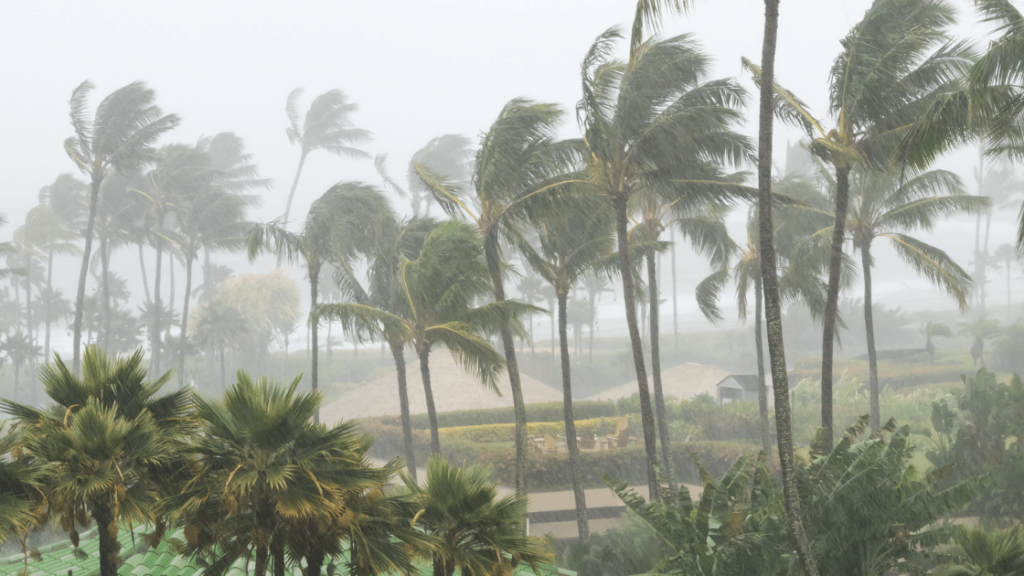
Why Choose TrapBag?
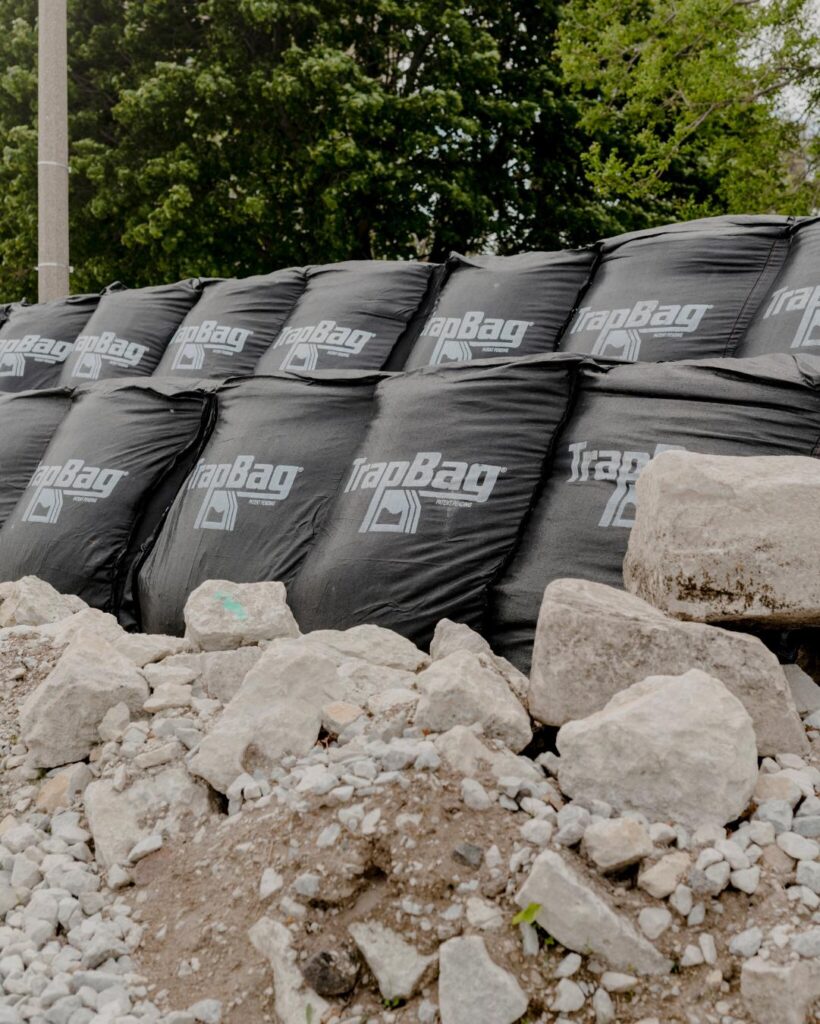
-

Reliable Strength
TrapBag® is designed to perform under pressure. Its geotextile woven polypropylene withstands harsh environmental conditions and can even strengthen when exposed to UV rays. When failure is not an option during crisis situations, these barriers deliver reliable strength.
-

Efficient Design
Each cell in a TrapBag® flood barrier is designed with a pentagonal shape that loads 60% of the barrier’s mass in its bottom half. This makes them easier to install and fill quickly during urgent jobs such as predicted landslides or flash floods.
-

Fast Deployment
With TrapBag, a small team consisting of just two individuals and someone operating a skid steer or small backhoe can complete a 100-foot (approximately 30-meter) barrier within a single hour. Compare this to the possible days it can take to fill and deploy sandbags for a barrier of a similar size when every second counts.
How TrapBag® Compares to:
Sandbags are labor-intensive and slow to install, often leaving gaps that allow water to break through. TrapBag® barriers provide stronger, more consistent protection and can be deployed in a fraction of the time.
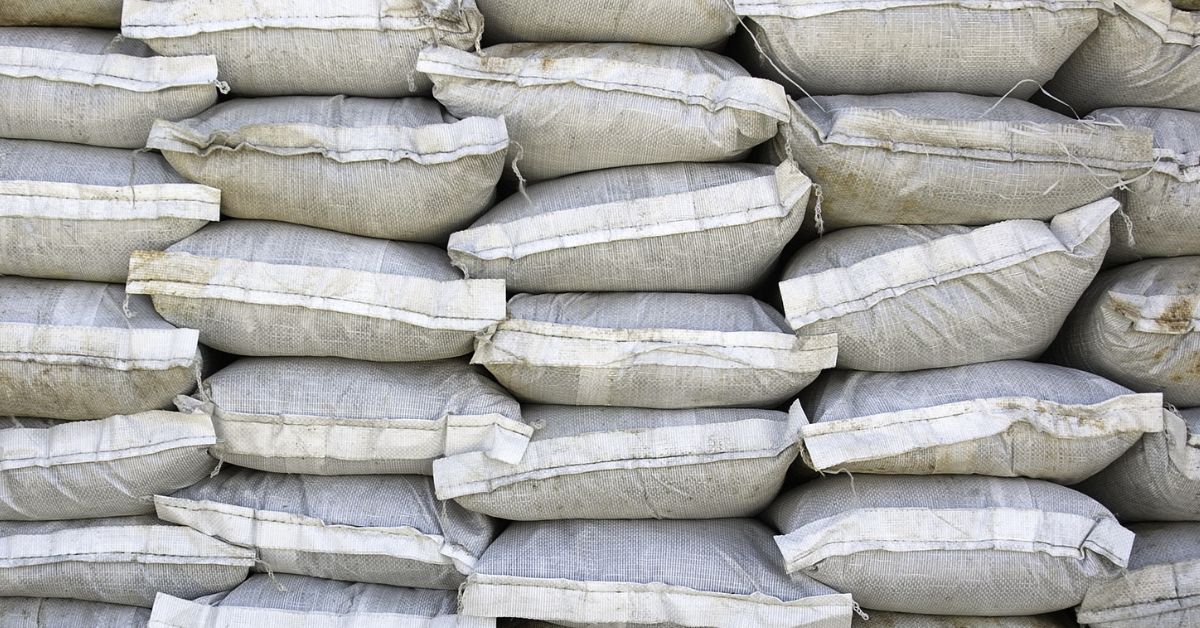
While quick to deploy, water-filled barriers are limited in height and durability. TrapBag® barriers begin at 1.2 meters tall and can be stacked for added height and wave resistance, providing a more secure and lasting flood defense.
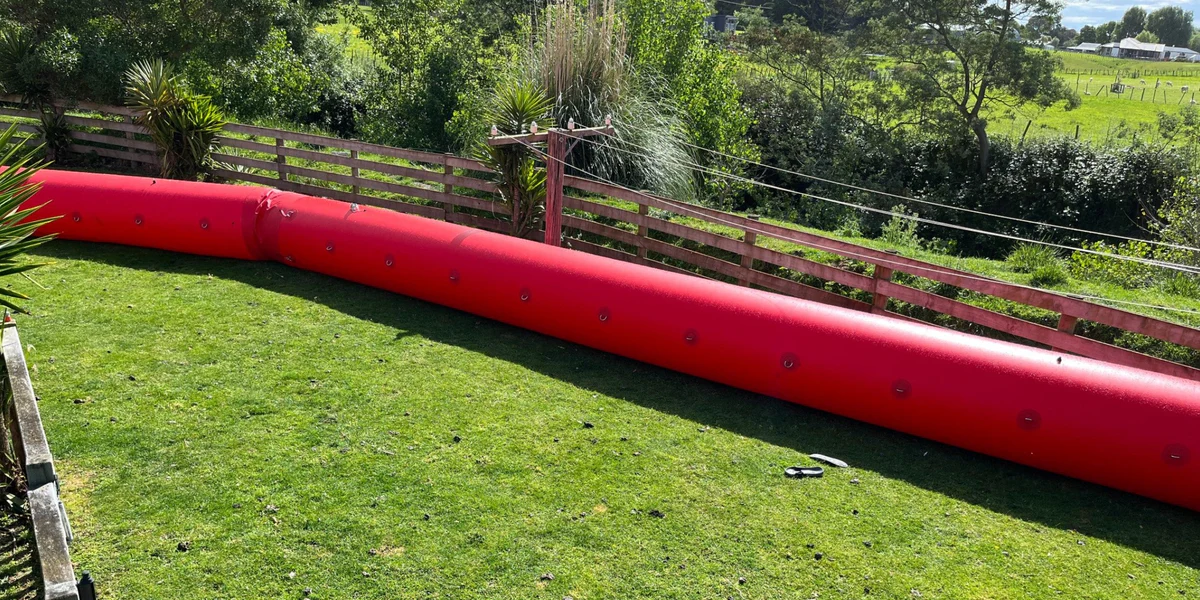
Flood walls can offer long-term protection but are costly and time-consuming to construct. TrapBag® provides a flexible, cost-effective alternative that can be installed quickly and scaled for temporary or semi-permanent projects.
